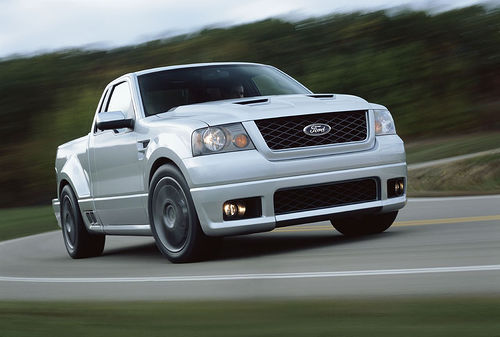Contents
Creditors must turn over property to the debtor as quickly as possible after learning that the debtor has filed for bankruptcy.
In re Makowski, __ B.R. __ (Bankr. D. Alaska 2013)
Cope Law Offices are located in Southern Ohio, but nonetheless, we thought this recent case out of Alaska would be of interest to our clients.
The automatic stay is “one of the most fundamental protections afforded a bankruptcy debtor.” In re Makowski, __ B.R. __ (Bankr. D. Alaska 2013). The automatic stay prohibits creditors from repossessing or foreclosing on the debtor’s property and stops all actions against the debtor in other courts. It gives the debtor time to organize his finances without creditors’ threats looming over him. Not only are creditors forbidden from taking possession of a debtor’s property, but they may be required to return property they have already taken repossessed.
Nathan’s Ford F150 Repossessed
Nathan purchased a Ford F150 pickup to travel to and from work, but times were hard and money was short. The Greater Nevada Credit Union held Nathan’s loan, which had an outstanding balance of almost $33,000. When Nathan defaulted on his payments, Greater Nevada repossessed his truck. He borrowed a vehicle to travel to and from work and filed for bankruptcy a week later.
Nathan’s Attorney Files Suit
The same day Nathan filed for bankruptcy, his attorney faxed a letter to both Greater Nevada and the tow yard where Nathan’s truck was held to inform them of the bankruptcy and request that they return the truck. After deliberating for a weekend, Greater Nevada informed Nathan that it would not return his vehicle. In response, Nathan’s attorney filed suit against the credit union for violating the automatic stay. The day after that, Greater Nevada returned the truck.
11 U.S.C.A. § 542(a)
When a debtor files for bankruptcy, any entity “in possession, custody, or control” of property of the debtor must deliver the property in question to the trustee. 11 U.S.C.A. § 542(a). According to the court, “the automatic stay prohibits both actions taken to obtain possession of property of the estate [and] actions that exercise control over the property of the estate.” Mikowski, __ B.R. at 2. A creditor may take a reasonable amount of time to seek legal counsel before turning over the property, but refusal to turn over property of the bankruptcy estate is a violation of the automatic stay. Id.
Despite the repossession, Nathan’s truck was property of his bankruptcy estate. He took ownership when he purchased it and then he used it as security for a loan. As soon as Greater Nevada learned of Nathan’s bankruptcy and consulted with its legal counsel, it should have returned the truck. When Greater Nevada told Nathan it wouldn’t return his vehicle, the credit union “exercised control over property of the estate.” Id. at 4. By refusing to return the truck, Greater Nevada violated the automatic stay.
Nathan’s Truck Was Returned
While Greater Nevada did eventually return Nathan’s truck, it still violated the automatic stay by threatening to withhold it. The automatic stay is one of the most important aspects of bankruptcy and the court takes it seriously. When you file for bankruptcy, you’re putting all creditors’ claims on hold. Any payments to creditors must be made through the bankruptcy estate by the bankruptcy trustee – they can no longer take matters into their own hand. Bankruptcy is meant to protect you as you reorganize your finances. It stands between you and your creditors.
Image from Flickr user mst7022
About Russ Cope
Russ B. Cope is dedicated to legal standards that go far beyond filing cases — he is interested in your goals. Russ wants to be certain that each client is making an informed decision that will make their life better, and thrives on the interaction between lawyer and client.
- More Posts(82)


Leave a Reply